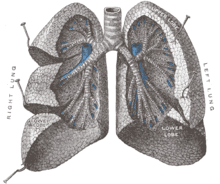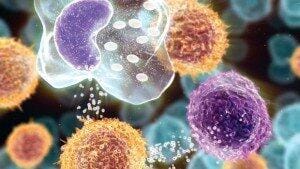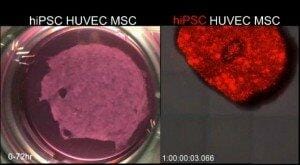Microchip Quickly Detects Defects in Donor Lungs


A: Lung assessment workflow. B: Chips and sensors after electrochemical deposition. C: Target mRNA hydridization and resulting signal. From: http://advances.sciencemag.org/content/1/7/e1500417.figures-only
Researchers from the University of Toronto have developed a microchip that detects biomarkers for lung assessment for transplantation. The microchip will detect lungs damaged at molecular level and thus avoid post-transplantation death. The finding was published in the journal Science Advances.
Primary graft dysfunctions cause death of up to 25% of lung recipients. Many tests are carried out to ensure the viability of the donated lungs, but these fail to detect some elusive defects. Biomarker detection and quantification are common in other fields of medicine, and would be very useful to assess an organ transplantation, but are not suitable due to time constraints: doctors need to make a decision in less than 6 hours.
Several biomarkers quantified in 20 minutes
Dr. Shana O. Kelley and colleagues have solved this problem by designing a microchip that detects defective lungs in 20 minutes. When biomarkers – molecules that indicate a given condition – bind to the chip, they originate an electrical signal that allows its quantification and to assess lung quality. The chip detects several biomarkers simultaneously. In a proof of concept study of 52 transplants, the chip detected 100% of lungs (19) that caused primary graft disfunction.
The microchips could save many healthy lungs that are currently being wrongly discarded by conventional tests. On the other hand, it would help reject the actually damaged lungs that are being transplanted.
Source: U. of T.



